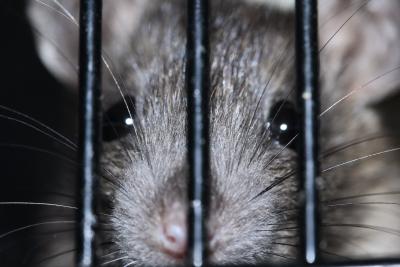With the country beginning to unlock, Cleankill Pest Control is reminding businesses to check they have the right measures in place to stop an infestation of rodents.
It is often said that a dog is a man’s best friend. However, for rodents, it could be said humans are their best friends. Pre-pandemic, our social lives and working routines gave them plenty of food and harbourage.
That all changed in March 2020 as the country went into lockdown to deal with COVID-19. The British Pest Control Association (BPCA) reported a 51% spike in rodent activity in the Spring of 2020, with a further spike of 78% during the November lockdown. Cleankill, which covers the whole of the south of England, has since reported a further year-on-year increase of 27% in rodent related callouts in the first two months of 2021.
Lockdowns have had two major impacts on the rodent populations of our cities. Firstly, without the constant presence of human activity, they have been able to breed unhindered. It’s been estimated an extra 30 million rats were born in the UK in 2020. Secondly, because we have not been active in our usual places – offices, factories, restaurants, pubs, takeaways, shopping centres, etc. – the rodents have been forced to move into new areas to find food.
With children returning to school and the Government’s roadmap underway, now is the time for businesses to make sure their pest control contracts are in place as the return of workers to offices, shops and factories may mean an increase in infestations. In some cases, the rodent problem might have already existed but gone unnoticed during lockdown. In other cases, rodents might choose to return to the places that have traditionally supplied them with food and harbourage.
Paul Bates, Managing Director of Cleankill Pest Control, explains: “It has been a tough year for everyone except, it would seem, rodents. Our figures from across the last 12 months show how well rats and mice have adapted to lockdowns. As people return to their places of work, we are predicting a big increase in pest control issues relating to rodents.
“Employers are legally required to provide their employees, customers, and other stakeholders with a safe working environment. That means making sure their preventive pest control systems are in place and working.”
Infestations can be very costly. Even if a business avoids closure or fines by the council’s Environmental Health office, treating an infestation will be more costly than employing effective preventive measures in the first place.
Paul added: “We know it has been a difficult year for businesses. Everyone is looking for a way to cut costs but, the truth is, cutting preventive pest control is a saving you just can’t afford to make. Over the years, we’ve seen businesses of all sizes, from independent takeaways to large factories, think they can operate without pest control contract in place but the eventual cost in terms of lost reputation, damaged stock and turnover, not to mention the health and safety issues means this is a gamble businesses shouldn’t take.”
Cleankill Pest Control deals with the full range of public health pests, such as mice, rats, cockroaches, and pest birds. Cleankill believes in prevention rather than destruction and within the industry is recognised as leaders in the delivery of effective, innovative and ‘green’ pest control solutions.
Launched in 1995, Cleankill Pest Control has grown year on year and now has several thousand clients throughout London, Bristol, Buckinghamshire, the South East and across the UK. The company’s head office is in Croydon, Surrey, with local offices in East Sussex, Bristol, Buckinghamshire and Hampshire.
Ends
For more information or interviews contact Suzi Christie on 07590 591140 or email suzi@blueberry-pr.co.uk
